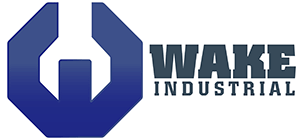Apps And Industrial Engineering
4 May, 2020 | Industrial Manufacturing, Industrial Engineering, Apps, Applications, Cell Phone, IPhone, Technology

The brave, new world we live in is one built on the backs of innovation, technology, and the belief that we should work smarter rather than harder. This has brought us convenience in many different forms, but few greater than in the smartphones we carry with us every day. Thoroughly enmeshed in our lives, phones have practically become an extension of ourselves and one that has a solution for just about anything. They've become integral to how we work and learn, proving us quick references, educational resources, and more thanks to the seemingly endless apps they boast. These apps have had a significant impact on countless industries, but especially industrial engineering as a whole.

Fantastic Apps and Where to Find Them
If you have a problem to solve, you'll probably find at least one person that replies "there's an app for that" – and for good reason. Whether you find your apps through the Play Store, Apple's App Store, or even Microsoft's app store, you will surely happen across what you are looking for. Industrial engineers are not left out here, with a slew of options to help make their work less complicated and more efficient. What does this look like in practice? Well, modeling and design programs are now available for cheap in intuitive phone apps. AutoCAD has been a major one to make the move to mobile. Now looking great and working just as well as the desktop version of yore, the new app lets users create, edit, and share detailed 2D and 3D designs even on the go. For industrial engineers specifically, this is a fantastic tool as well since it can help them design equipment and better visualize machinery layout to maximize ease of use and material resources.
These new engineering apps are not just for design work, though. There are also a variety of other apps out there meant to aid in inspection processes, following lean manufacturing processes, data processes, and more. LeanApp and iAuditor are particularly good examples of this, allowing you to monitor employee progress, receive inspection reports, and organize data entry – all of which are crucial to tracking efficiency and maintaining good manufacturing processes. More comprehensive solutions are also coming out on app markets, including the relatively new Industrial Engineering app from Softecks that offers information on everything from process planning to optimization techniques to ergonomics.

The Benefits and the Consequences
So, we have talked a little about recent app developments and their primary uses, let's touch on what it all means. With all these apps now available at our fingertips, what impact are they having on the industrial engineering field? Maybe even more importantly, what kind of impact will they have many years from now? Well, for starters, increased reliance on modern technology is an obvious consequence of these apps. For some, this is a worrying development, but it does not have to be.
With the digitization of today, it is easier than ever to create new designs on the spot. Mobile versions of AutoCAD or alternatives mean an engineer always has their tools at their fingertips. They can draft a model whenever and wherever, and they can easily share it with colleagues. Not only does this create a unique culture where work (and innovation) can get done faster, it creates one where work can be better. With accessible opportunities for new design and sharing, industrial engineers can cooperate in real-time and can thus provide more holistic, cohesive solutions that take both entire systems and their mechanics into account.
Perhaps even more importantly, industrial engineers will also see significant positive consequences from the use of these apps since they can substantially help them discover how to lower costs, optimize machinery and facility design, and push innovation forward. Likewise, these same apps are central to data collection and analysis that can help them quickly recognize recurring problems, discover what equipment or systems work best, and find what is efficient or not in the production process. In other words, apps overall help streamline the engineers’ work, which in turn allows them to streamline the production process.










